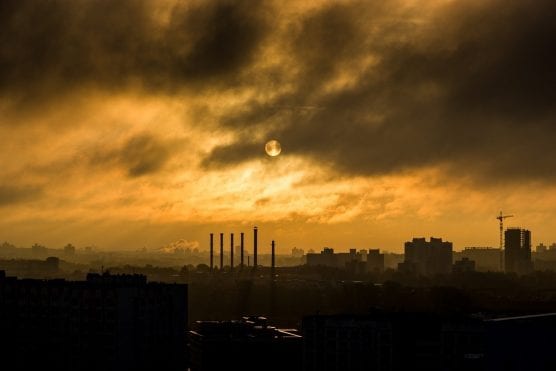By Nick Cahill
SACRAMENTO – In the wake of a catastrophic wildfire that ripped through a foothill community during what’s normally the beginning of California’s rainy season, Toni Atkins wanted to be the first lawmaker to act.
One week after firefighters fully contained the deadly Camp Fire which left thousands homeless in Butte County, the state Senate Leader used the first day of the current legislative session to introduce what she and supporters call “Trump insurance for California’s environment.”
Aiming to protect California’s reputation for setting tough clean air and climate change laws in the face of lackluster federal standards, the West Virginia native is making environmental issues a focal point of the state Senate’s 2019-20 agenda.
Keeping to Atkins’ legislative outline, lawmakers on Wednesday advanced her bill that would deflect the Trump administration’s attempts to scale back environmental laws and require state agencies to abide by – at a minimum – the federal regulations that were in place under President Barack Obama.
“Senate Bill 1 simply provides that whatever actions the new federal government may take, California will continue to enforce the same environmental and public health protections that have been in effect for years as a matter of state law,” Atkins told the Senate Environmental Quality Committee on Wednesday.
Joined by Los Angeles-area state Sen. Henry Stern, Atkins testified that the main purpose of SB 1 is to ward against the deregulatory appetite of the Trump administration.
Atkins said that under Trump, federal agencies have collectively weakened over 30 standards for clean air, water and endangered species. She added Trump’s latest budget proposal calls for further cuts to the U.S. Environmental Protection Agency that would in essence prevent the agency from enforcing environmental protections that have yet to be gutted.
Under the proposal, state agencies would be required to assess federal rule changes and determine whether the changes are less stringent than baseline federal standards in place as of Jan. 19 2017. If so, the agencies would have to meet and consider adopting the 2017 standards.
The bill also has implications for California employers, as it bars state agencies from passing workers’ rights or safety rules that are weaker than federal standards in place as of January 2016. The measure would sunset as of January 20, 2025 – the latest possible date for the Trump administration to end.
“Beginning in 2017, a new presidential administration and United States Congress have signaled a series of direct challenges to these federal laws and the protections they provide,” the bill states. “It is therefore necessary for the Legislature to enact legislation that will ensure continued protections for the environment, natural resources and public health in the state even if the federal laws specified in subdivision (a) are undermined, amended or repealed.”
Environmental groups such as the Natural Resources Defense Council and the Sierra Club predictably backed the bill Wednesday, but business groups and Republicans sitting on the committee said it would create “regulatory uncertainty.”
The California Chamber of Commerce listed SB 1 on its annual “job killers” list before the bill even had a hearing.
“SB 1 is a job killer because the uncertainty created by the bill’s vague, ambiguous, and broad language and lack of due process in the rulemaking process would negatively impact the growth, employment, and investment decisions of almost every major California business. Due to costs and anticipated litigation associated with SB 1, companies doing business in the state would be hard pressed to hire more workers or expand California operations,” the chamber of commerce warns.
Republican state Sen. Patricia Bates is worried that the bill could “take power from the people” and give it to unelected state agencies.
Sen. Stern responded that the bill wouldn’t require mounds of regulations as it simply directs state agencies to revert back to the Obama-era standards.
“It’s a copy-and-paste job,” Stern responded to the opponents’ criticisms. “You’re not talking about an entirely new regulatory framework that’s emerging out of nowhere; you’re literally just putting the same thing that’s in the federal code of regulations into the California code.”
After 40 minutes of debate, the Democratic-led committee cleared the proposal 5-2, with Bates and a fellow Republican voting no. The measure will face three more Senate committees before a potential floor vote. A similar measure died in committee last year.
There is precedent for Atkins’ proposal: In 2003, the Legislature passed a measure that prohibited state air quality management districts from enacting laws that were less strict than federal clean air standards that existed in 2002. At the time, state Democrats and environmentalists were incensed over the Bush administration’s repeal of a portion of the Clean Air Act that required refineries and power plants to upgrade their facilities.
Atkins, 56, closed the committee hearing by saying that SB 1 is a particularly emotional proposal for her, as she grew up in West Virginia and saw the environmental devastation caused by the coal industry.
“I don’t want to lose one single bit of ground that we have gained,” Atkins said. “For all that we’ve been able to do in California, we still have the worst air quality of any place in the country and so we have work to do.”
Like this:
Like Loading...
Related





 Tweet This
Tweet This Facebook
Facebook Digg This
Digg This Bookmark
Bookmark Stumble
Stumble RSS
RSS


























REAL NAMES ONLY: All posters must use their real individual or business name. This applies equally to Twitter account holders who use a nickname.
0 Comments
You can be the first one to leave a comment.